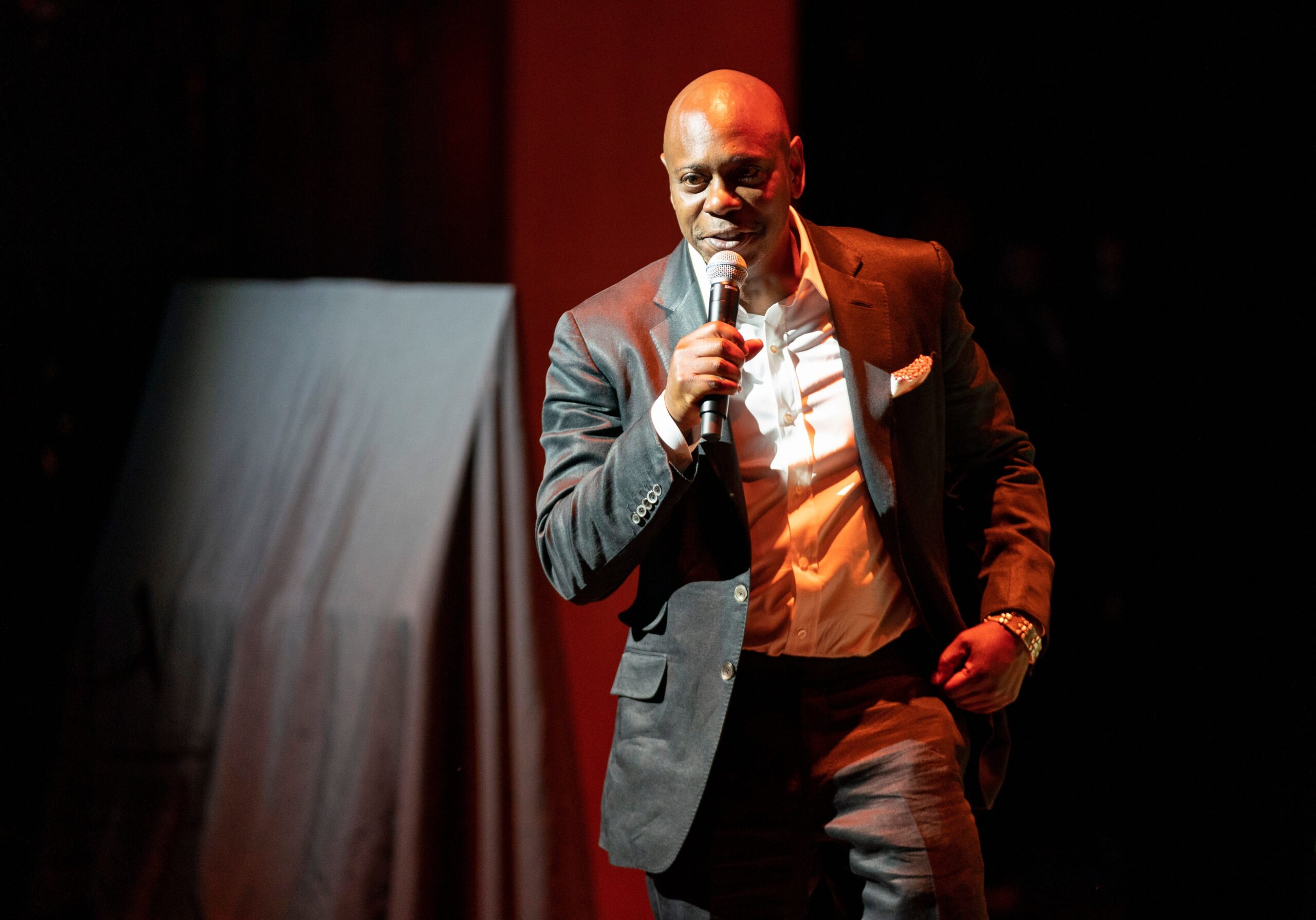
Dave Chappelle
Photo by Gemunu Amarasinghe-AP-Shutterstock
8:46—Dave Chappelle’s newest special, surprise dropped on Youtube in the wee hours of the morning—isn’t comedy.
The official caption below the video reads: “From Dave: Normally I wouldn’t show you something so unrefined, I hope you understand,” followed by a link to the Equal Justice Initiative.
This is an unconventional performance, filmed outdoors in front of a small audience wearing face masks. The Covid-19 epidemic is still raging, after all. Chappelle astutely recognizes that as the first major comedy show since coronavirus hit the US, it’ll go down in history books. He’s right. If any piece of entertainment media is going to make it into history books pertaining to this period of social upheaval in America, trust it’ll be 8:46.
But not because it’s the first comedy show since coronavirus. No, 8:46 is going to go down in history because Dave Chappelle delivered a performance like few other people ever could.
8:46 – Dave Chappelleyoutu.be
Chappelle is shaky on stage. He looks tired, fiddling with a notebook and a cigarette. “It’s hard to figure out what to say about George Floyd, so I’m not gonna say it yet,” he says.
So Chappelle switches gears, launching into a loose, conversational anecdote about the Northridge earthquake of 1994. He describes the experience of being caught unaware in an earthquake for the first time, floundering for his clothes, his weed, his money, and his keys, before ultimately relaying the terror of realizing that death was a distinct possibility. “That earthquake couldn’t have been more than 35 seconds.”
Then Chappelle pauses.
“This man kneeled on a man’s neck for 8 minutes and 46 seconds,” says Chappelle, his voice raised, the conversational tone completely dissipated. He stands up. “Can you imagine that?”
What proceeds is a harrowing 20 minute sermon, wherein Dave Chappelle recounts his emotional response while watching the video of George Floyd’s murder, and then outlines a series of other publicized murders of unarmed black men in America, from Eric Garner to Michael Brown to Trayvon Martin to John Crawford III to Philando Castile.
“These are our people,” he cries out in righteous anger as he rails against the NRA for their abject racism in not standing up for a licensed carrier, murdered in front of his girlfriend in his own car during a minor traffic stop, for the “crime” of legally owning a gun while black.
As an almost entirely serious performance (the “almost“ being because Dave Chappelle jokes about Laura Ingraham being a “c*nt” and Candace Owens being a “rotten b*tch,” neither of which are actually jokes) delivered by the single-best comedian alive today, 8:46 is jarringly powerful. But Chappelle also recognizes his role within the larger cultural conversation, continually giving credit to the young people protesting on the front lines.
“Do you want to see a celebrity right now? Do we give a fuck what Ja Rule thinks? Does it matter about celebrity? No. This is the streets talking for themselves.”
In 8:46, Dave Chappelle isn’t just speaking for himself. Rather, he’s lending his voice to a much larger issue in America. Slavery is not in the distant past, and black lives are constantly under assault by terroristic police. Enough is finally enough.
- “Paper Tiger,” Bill Burr Proves He’s No Dave Chappelle ›
- The Best Netflix Comedy Specials of the 2010s – Popdust ›
- Don’t Cancel Cancel Culture: We Need Transformative Justice … ›
- Dave Chappelle’s New Netflix Specials Are Ice Cold – Popdust ›
- Most Memorable Chappelle’s Show Sketches – Popdust ›













